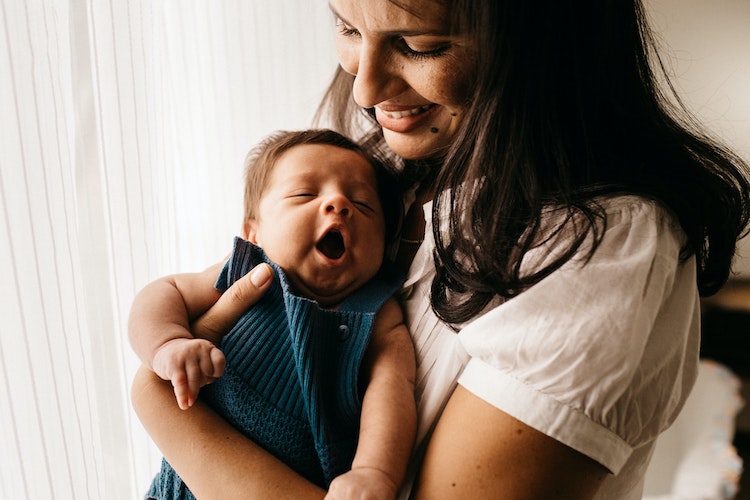
Today I want to write about how we talk about adoption, and adoption trauma, in particular.
We often talk about adoption like a fairy tale, with a tragic infant and kindly strangers. They rescue the child, and love her as if she was their own.
It’s not a helpful story, and it isn’t true.
Actually, adoption is a complicated, and it doesn’t always start or end happily. One in ten adoptions fail, and many fall apart before getting to that stage. That’s something to think about before hurling abuse at a family with a failed adoption.
What we must accept is that adoption is inevitably traumatic. Accepting this basic truth means we can do a better job of helping children have a positive experience of adoption.
What is Adoption Trauma?
Adoption basically means taking a small human away from their parent, and placing them with a stranger. There is evidence that this causes real changes in newborn brains, affecting how those children respond to stress, as well as their ability to form healthy attachments.
This isn’t a reflection on adoptive parents, and it doesn’t mean a child isn’t loved, or happy. What it means is that most adopted children experience some degree of trauma, which plays out in certain behaviours and personality traits.
What Adoption Feels Like
I was a happily adopted child, and I have no doubt that my adoption was “for the best”. That said, I definitely had feelings and experiences that my adoptive family could not have understood.
Adoptees are often low-key anxious about their position in a family, a lot of the time. Is that new visitor a social worker who will take me back? If I go on a day out with those family friends, does it mean I’ve been given away? If I get into trouble at school, would my parents still want me?
At times I felt adoption was this thing I had to be grateful for. Gratitude is important and nobody wants to be an entitled brat, but I’m not sure my non-adopted siblings ever felt grateful for simply being part of a family.
Gratitude does a great job of squashing negative or difficult feelings, and some kids might become “pleasers” or highly anxious because they repress difficult emotions. Other adoptees will experience poor mental health without the right support.
I put a lot of pressure on myself to do well at school. The worst thing I could imagine was my parents being disappointed in me, and regretting taking me. Even as an adult, I find it really uncomfortable being around family if my life isn’t going well.
What Adoption Trauma Looks Like
Adoption trauma often results in quite specific behaviours among adopted children.
This might include:
- Children who struggle to trust relationships are permanent. These children may be extremely clingy, or need lots of reassurance and attention from adults.
- Adoptees who struggle to cope with rejection, and avoid situations where they feel unwanted. Their response to rejection may seem out of proportion, but remember that adoptees may literally be wired differently because of early experiences.
- It is a rare adoptee who never wondered what was wrong with them, that made their parents not want them. These children may resist affection and push people away, or they might become perfectionists, seeking to prove they’re “worth” keeping.
- Adoption trauma can involve grief, and loss. Your adopted child may grieve for a birth family they don’t remember, and this can be a complicated, painful process.
What Parents Need to Know
As an adopted child who has now become a parent, these are the things I want you to know about adoption:
- It’s true that the impact of adoption on infants may be less, but it is still a traumatic event. The impact of adoption will be different for every child.
- It’s important to choose words carefully. Repeatedly telling a child they are lucky, or chosen, can create feelings of obligation or rejection.
- Talking about a child’s “real” parents tells the adopted child that their family, their life – isn’t really theirs.
- Personality traits are largely inherited so your family may all be extrovert, while your adopted child is fundamentally introverted. It’s important to accept this, to celebrate it, and let your child know you love them for the person they are.
- Everyone deserves to know their history, so be the keeper of your child’s story. Whatever information you have, write it down and share it freely when your child is ready.
- Please don’t take it personally if your child expresses negative feelings about being adopted. Make sure your child knows it’s okay to talk about whatever they feel, and they won’t be seen as ungrateful or hurting your feelings.
- “No matter what” is a powerful phase to an adopted child. “No matter what, I am here for you.” “No matter what, you have a home with us.” “No matter what mistakes you make, we will not walk away from you.” Say these things often to adopted children. If you’re lucky you’ll get to a point where they roll their eyes and say, “Yeah. I know!”





i would love to adopt a child one day